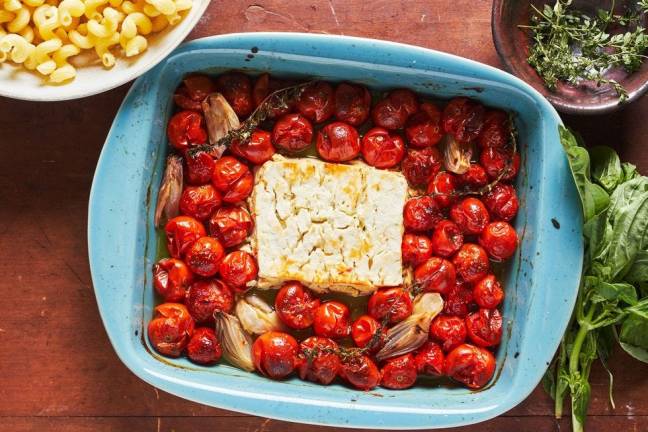Seasonal Affective Disorder
- When the dark days of winter approach, do you feel sluggish and slow? Is it a struggle to get out of bed each morning?
- Do you have difficulty focusing at work or in relationships, feel down in the dumps, or, worse still, get really depressed?
- Does it get harder than ever to stick to a healthy diet and control your weight?
In many northern areas, as the days grow shorter, the sky becomes gray. When I was an adolescent in east Tennessee, I said I hated empty trees in winter. I didn’t know it then, but the gray days of winter made me melancholy. One of my earliest posts here on the blog was about the winter blues or Seasonal Affective Disorder. I am sensitive to the loss of sunlight. Gray skies and empty trees are my image of winter when my energy diminishes. If you experience that sensitivity, go back and read my post. Check out the reference book in the symptoms and actions you can take to feel better. Personally, I found full spectrum light helped me. I moved to Miami from middle Tennessee in my 20’s. I didn’t know about SAD but I had more energy and was happier. Later reading Winter Blues by Dr. Norman E. Rosenthal I understood the problem and possible solutions. This perennial best seller can help you evaluate your own seasonality and seek relief.

Besides SAD, chilly winter weather affects more than just your wardrobe and heating bill. Your body also experiences changes in energy levels, metabolism and even food preferences. Do you react to bitter cold by skipping a workout and convincing yourself you deserve a calorie splurge? No matter what they do in Hallmark movies, no one should spend the whole winter drinking hot chocolate and eating cookies.
When the weather outside is frightful and the sky is filled with gray clouds, we need some great ideas for indoor winter meals that are healthy and wholesome with lots of good nutrition. Yesterday I suggested 5 homemade dishes that are comforting. Today let’s review what we need to include in our meals to stay healthy during the cold weather. For me, when it’s freezing outside, there isn’t much incentive to venture out for a long walk or hike. Instead, I want to stay indoors where I stay warm and comfy. I go with soups and stews more. I know it can be challenging to find new meal ideas when the temperature drops. Here are a few thoughts about what our bodies need during the cold season.
Healthy Winter Foods
I. Root Vegetables
As weather gets colder, most fresh local vegetables disappear. The source of comfort and vitamins during this time are the root vegetables like beets, carrots and turnips. Roast carrots for a boost of beta-carotene, or boil turnips for vitamins C and A. Roast a baking pan full of root vegetables. Add them to soups and stews. Soups and stews are great for winter meals. They’re easy to make and can be customized to your tastes. It is so easy making chicken stew in an instant pot; for example, all you need to do is add the ingredients and wait for it to be ready. Southern Living has an excellent post, Root Vegetables, Everything You Need To Know. Check out the recipes for homemade goodness. Root vegetables include:
- Potatoes
- Carrots
- Beets
- Turnips
- Parsnips
- Onions and shallots
- Radishes
- Sweet potatoes
Curries are a fantastic winter meal, especially if you like your food a little on the spicy side. Below is Tesco’s Vegetable Coconut Curry. The sweet potatoes kick up the nutrition while adding great flavor.

II. Food With Vitamin D, The Sunshine Vitamin
Vitamin D-rich foods are the number one food item to add to your menu during the winter. Vitamin D is both a nutrient we eat and a hormone our bodies make. Our bodies make Vitamin D in the skin when exposed to the sun’s ultraviolet-B (UVB) rays. It is a fat-soluble vitamin that helps the body absorb and retain calcium and phosphorus for building bone. Studies have shown that people who have emotional eating during the fall also have lower levels of vitamin D. A deficiency in Vitamin D is also associated with more anxiety and depression. Laboratory studies show that vitamin D can reduce cancer cell growth, help control infections and reduce inflammation. Many people have insufficient levels because they live in places where sunlight is limited in winter, or because they have limited sun exposure.
The best food sources are the flesh of fatty fish and fish liver oils:
- Cod liver oil
- Salmon
- Swordfish
- Tuna fish
- Orange juice fortified with vitamin D
- Dairy and plant milks fortified with vitamin D
- Sardines
- Beef liver
- Egg yolk
- Fortified cereal
My suggestion for a great fatty fish meal is wild caught salmon baked with a balsamic glaze.
III. Oatmeal
Oatmeal provides nutrients that are essential during the winter months. Oatmeal is high in zinc (important for proper immune function) and soluble fiber (associated with heart health). You can add all kinds of tasty spices and fruits to make breakfast new and different. For a cool fall morning try Apple Cinnamon Oatmeal for breakfast. Avoid instant oatmeal. It is far more expensive per serving and has too much sugar in it. If you have no time for breakfast, check out my recipe for Oatmeal Breakfast Cookies for a quick meal on the go. It contains no processed sugar or fat but has excellent taste with good ingredients.

Another way to add oats to your diet is an oatmeal smoothie. Well Plated has a delicious oatmeal smoothie recipe with a base of sweet banana, warm oats, peanut butter, and cinnamon. This decadent smoothie tastes like an oatmeal cookie. That’s all I need to know!
IV. Pasta & Tomatoes
Pasta is a versatile dish, so it can go well with just about any savory seasoning. Add lots of red tomatoes for great nutrition. Tomatoes give you Vitamin C and lycopene. An issue from the Journal of Agriculture and Food Chemistry states that heat processing is able to enhance the nutritional value of tomatoes by increasing antioxidant activity, as well as the absorption of lycopene by the body. We all know we love tomatoes and tomato sauce. You can add classic Italian spices like oregano, parsley, basil, rosemary, or sage. There are many wonderful, hearty pasta dishes. Or try something new.
A popular post from TikTok which went viral is a feta and tomato recipe called Baked Feta Pasta. Delish suggests adding shallots, garlic, and chili flakes to the dish. Melting feta with bursting hot spicy tomatoes sounds yummy and comforting. Add a bowl of pasta and our dinner is ready.

In conclusion, review what your body needs this winter. Add your favorites from the lists to your menu plans. You can create a delicious and healthy winter meal that will please everyone at the table and meet their nutritional needs. Have a great and healthy day!


Thanks for the visit. Get exclusive free printables & all the news straight to your mailbox!
Please see my Link Parties page for the parties where this post was shared.


